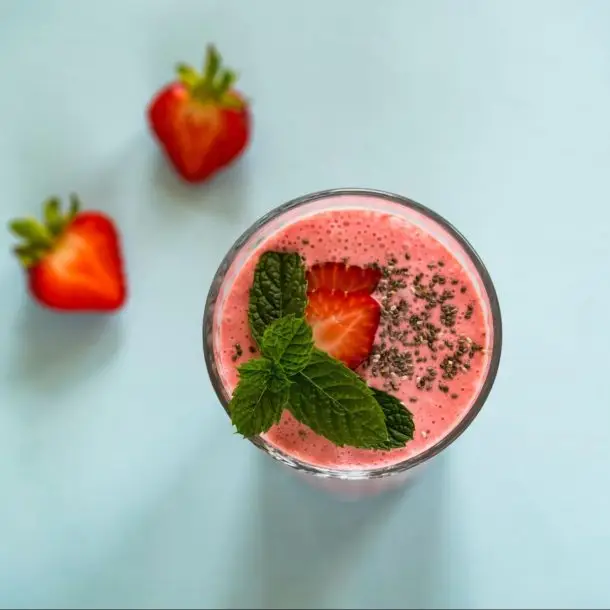

Scar tissue, tumors, polyps, and adhesions can block the fallopian tubes, making it hard to get pregnant. Often caused by conditions like pelvic inflammatory disease and endometriosis, these blockages are a leading cause of infertility in women. Thankfully, there are many ways to unblock a fallopian tube naturally. By adding the right foods to your diet (and avoiding the wrong ones), taking certain supplements, incorporating castor oil packs, and making a few simple lifestyle changes, it may be possible to naturally unblock your fallopian tubes so you can get pregnant.
Today is the sixth and final segment of my Natural Remedies Blog Series. I hope you have found this series useful and filled with practical information!
If you’re just tuning in, I’ve been discussing how to treat various hormonal conditions naturally. While there are situations and circumstances where medical therapies are necessary, I truly believe that natural remedies are foundational and should always go hand-in-hand with medicinal therapies!
You can find the other five parts of the series here:
Natural Remedies for Polycystic Ovary Syndrome (PCOS)
Natural Remedies for Endometriosis
Natural Remedies for Low Progesterone
Natural Remedies for Estrogen Dominance
Today’s topic? Natural Remedies for Blocked Fallopian Tubes!
When an egg is released from one of the ovaries, it travels through one of the fallopian tubes, which are narrow ducts that connect the ovaries to the uterus. Normally, the egg will join with the sperm in the fallopian tubes during conception and the now-fertilized egg will continue on to the uterus. However, the fallopian tubes are extremely fragile. When an obstruction prevents the egg from traveling down the tube, the woman has a blocked fallopian tube. It can occur on one or both sides.
This is also known as tubal factor infertility and is thought to be the cause of infertility in 40% of infertile women.
Unfortunately, there are rarely signs of blocked fallopian tubes, and women often don’t know they have blocked fallopian tubes until they are trying to get pregnant and are running into issues.
If you have ever suffered from pelvic inflammatory disease, there is a good chance that your tubes are blocked, as doctors estimate that at least 3 out of 4 women that have had a sexually transmitted disease do suffer from tubal blockage.
A specific kind of blocked fallopian tube, called hydrosalpinx, may cause lower abdominal pain and unusual vaginal discharge, but not every woman will have these symptoms. Hydrosalpinx is when a blockage causes the tube to dilate (increase in diameter) and fill with fluid. The fluid blocks the egg and sperm, preventing fertilization and pregnancy.
Blocked fallopian tubes are diagnosed by a doctor, usually through one of three tests:
Hysterosalpingogram (HSG) is an X-ray test, using a contrast dye to view any obstruction in the fallopian tubes.
Chromotubation is similar to hysterosalpingogram as it includes dye being passed into the uterus and fallopian tubes as well, though this test is done laparoscopically.
Sonohysterography is a non-invasive procedure where ultrasound imaging is used to determine if there are any abnormalities of the reproductive organs.

The most common cause of blocked fallopian tubes is pelvic inflammatory disease (PID). PID is an umbrella term for a number of different problems that create an inflammatory infection in the female reproductive system. PID is usually the result of a sexually transmitted disease, but not all pelvic infections are related to STDs. Also, even if PID is no longer present, a history of PID or pelvic infection increases the risk of blocked tubes.
While PID is a common cause, below you’ll find other potential causes of blocked fallopian tubes:
These conditions can cause fallopian tube blockage by causing adhesions, scar tissue, tumors or polyps to form inside the path of the tube. The fallopian tubes may also become stuck to other parts of the internal body—the bladder, ovaries, uterus, bowels, etc. Damaged fallopian tubes can become twisted or the walls of the tubes themselves may adhere together causing a total blockage.
Partially damaged fallopian tubes may remain open enough for pregnancy to occur, but a partial blockage increases the risk for ectopic pregnancy.

Each month, when ovulation occurs, an egg is released from one of the ovaries. The egg travels from the ovary, through the tubes, and into the uterus. The sperm also need to swim their way from the cervix, through the uterus, and through the fallopian tubes to get to the egg. Fertilization usually takes place while the egg is traveling through the tube.
If one or both fallopian tubes are blocked, the egg cannot reach the uterus, and the sperm cannot reach the egg, preventing fertilization and pregnancy.
It’s also possible for the tube not to be blocked completely, but only partially. This can increase the risk of a tubal pregnancy, or ectopic pregnancy.
There are many ways to unblock a fallopian tube naturally!
As with any major diet and lifestyle changes, it takes at least 3-6 months of consistent change, along with natural therapies to bring about real change in the body when living with blocked fallopian tubes. So don’t give up when things get tough, I promise that these changes will be worth it in the long run!
If you’re wondering how to naturally unblock fallopian tubes, one of the most important steps you can take is reducing inflammation in the body. Begin by eliminating the foods that cause inflammation:
Eliminate these foods from your diet for at least three weeks, paying close attention to your body changing throughout the process.
It’s equally important to follow an anti-inflammatory diet when dealing with blocked fallopian tubes. That means it’s a good idea to ADD IN lots of these super beneficial anti-inflammatory foods:
In addition, you can reduce inflammation and regulate hormone production with important healthy fats. Essential fatty acids reduce inflammation in the body which will help to lessen any discomfort that blocked fallopian tubes can cause:
The enzymes found in papaya and pineapple will work wonders for promoting circulation in your fallopian tubes, while detoxing the built up tissue. So what better recipe to introduce than a Pineapple Papaya Salsa? This salsa is great served with grilled fish or pork. Let’s be honest though … It’s also incredible with gluten-free tortilla chips!

Pineapple Papaya Chunky Salsa
In a bowl combine all ingredients and let stand at room temperature 1 hour. Salsa may be made one day ahead and chilled, covered. The longer it marinates, the spicier it gets ;). Serve at room temperature.
Don’t be overwhelmed by the many supplement options that help with blocked fallopian tubes!
Below you’ll find the most important ones that I recommend to my clients to naturally unblock fallopian tubes:
Vitamin C: Vitamin C is required for the absorption of iron. In addition, it boosts immunity and fights infections. If your fallopian tube blockages are due to infections or inflammation, vitamin C may help clear them. Take 2 capsules daily.
Inflammatone: Inflammatone contains a blend of proteolytic enzymes. Systemic enzymes help to eat away and reduce fibrin (the material that makes up scar tissues) over time. The same enzymes work to promote healthy circulation and detoxification of tissues. This type of therapy is extremely promising for helping the body to reduce excessive scar tissue and inflammation. Take 2 capsules, twice daily on empty stomach.
Lifestyle changes are some of the most effective ways to help naturally cure your blocked fallopian tubes. The following lifestyle suggestions compliment your dietary and nutrition changes. I suggest implementing as many of the following as possible.
Check out the Environmental Working Group’s website to find the cleanest cosmetics, sunscreens, personal care products, house cleaners, and everything else. You can also check out the Shop My Home section of my website to optimize your skincare, body products, cleaning supplies, etc.
Pelvic Massage helps the body to clear blocked fallopian tubes. The act of massaging helps to break up scar tissue, increase circulation (to aid in tissue elimination), reduce inflammation, and it helps the body to loosen tight or twisted tissue. I highly recommend that you find a massage therapist who specializes in abdominal massage. You can find a search for a therapist trained in Maya Abdominal Massage therapy here: https://www.arvigotherapy.com/find-a-therapist.
A castor oil pack is a cloth soaked in castor oil which is placed on the skin to enhance circulation and promote healing of the tissues and organs underneath the skin. Read this post all about how to use a castor oil pack to unblock fallopian tubes, and for overall hormone + fertility health. To support hormone health, I recommend clients place the cloth soaked in castor oil on your lower abdomen, where your ovaries and uterus live. You can also place the cloth over your liver to support optimal hormone detoxification.

There are immune-enhancing, anti-inflammatory, and antimicrobial herbs that are capable of enhancing your immune system so that it can help naturally unblock fallopian tubes.
The Fertility Code is the best-kept secret of women who want to take the guesswork out of conceiving, and give themselves every possible chance of getting, and staying, pregnant successfully.
Bringing together a personalized & custom approach, evidence-based information, science-backed protocols, and nurturing practices, this course is for anyone who is struggling to get pregnant, or thinking about getting pregnant soon. The course is a one-stop-shop for getting your body, mind and soul prepared for conception.
In less than 3 months, you will learn exactly what you need to do now to get pregnant successfully and have a healthy full term pregnancy with The Fertility Code.
Sarah Jane Sandy is a certified nutrition therapist, and a fertility and women’s health expert. She has helped hundreds of women increase their fertility naturally and go on to have healthy full-term pregnancies. She has been working with women and couples trying to get pregnant for over 16 years and over 90% of the women who work with her get pregnant and have healthy babies.
She also works with women trying to fix their hormone imbalances, as well as supporting women through pregnancy and the postpartum period. Learn more about her own fertility and hormone journey here. To send Sarah a message, complete her Contact Form.

Curious about your fertility health? Take this simple quiz to find out what factors may be harming your fertility, and learn what you can do about it!